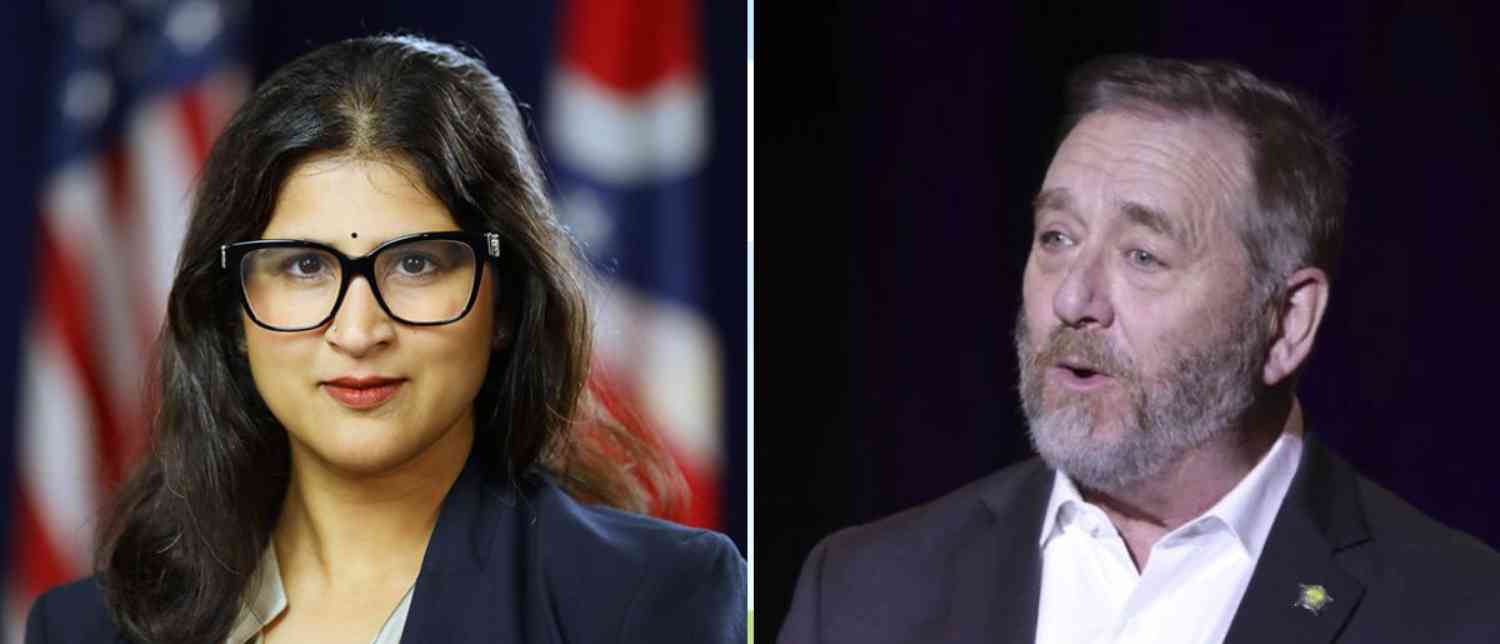In a nation that celebrates freedom, opportunity, and merit, one might expect a high-ranking legal appointment to be received with the dignity it deserves. But when Mathura Sridharan—an Indian-origin lawyer and a brilliant legal mind—was named Ohio’s 12th Solicitor General, what followed was not just applause. It was a mirror held up to America's ongoing struggle with identity, inclusivity, and what it really means to be "American."
Sridharan’s appointment is groundbreaking. As Ohio's top appellate lawyer, she now represents the state in some of its most pivotal legal battles, including those argued before the United States Supreme Court. And yet, for many online commentators, her academic brilliance, courtroom victories, and constitutional commitment weren’t enough. What did they fixate on? Her surname. Her complexion. And the bindi on her forehead.
This backlash—often steeped in ignorance and bigotry—begs a much larger, troubling question: In today’s America, is a woman's cultural identity still being used to measure her professional worth?
The Merit They Chose to Ignore
Let’s begin with the facts—unshakeable, undeniable.
Mathura Sridharan isn’t just qualified. She’s exceptional. A Juris Doctor from New York University School of Law. Dual Bachelor’s degrees in Economics and Electrical Engineering & Computer Science from MIT. A Master’s from the same Ivy League powerhouse. She clerked for two highly respected federal judges: Judge Steven J. Menashi and the late Judge Deborah A. Batts.
She’s not new to high-stakes litigation either. Most recently, Sridharan argued before the U.S. Supreme Court in Ohio v. EPA, a landmark case concerning the EPA’s Good Neighbor Rule. Her argument wasn’t just competent—it was successful.
So what’s the controversy here?
“What’s That on Her Forehead?”: The Bindi as a Battleground
The moment Ohio Attorney General Dave Yost announced Sridharan’s promotion on July 31, the online vitriol began. Comments flooded social platforms, many focused not on her skills or accomplishments, but on the fact that she wore a bindi in her official photograph.
“What is that on her forehead?” one user asked mockingly. Another sneered, “Nothing says ‘Ohioan’ like a dot right on the forehead.”
Some trolls questioned her religion, implying her bindi was proof she was unfit to lead. One post read chillingly:
“Is she a Christian? That’s the biggest factor that concerns me. Based on the bindi on her forehead, I worry she is not. That absolutely should matter to us when choosing our leaders.”
Let that sink in. In 2025 America, a highly educated attorney—selected for her unmatched legal acumen—is being asked to prove her Christianity and patriotism because she wears a traditional Indian adornment on her forehead.
AG Yost today named Mathura Sridharan as his pick for Ohio’s 12th solicitor general, the state’s top attorney for appeals in state and federal courts.
Details: https://t.co/IloRCZLpXD pic.twitter.com/3uaLuV57rP— Ohio Attorney General Dave Yost (@OhioAG) July 31, 2025
The "Wrong" Name and "Wrong" Complexion?
Sadly, the bindi was just the start. The trolling spiraled into attacks on Sridharan’s name, her ethnicity, and her right to even hold public office.
“She’s Indian. They all have a loyalty first to other Indians. Horrible pick. Totally un-American. The GOP is pathetic,” wrote one user.
Another asked, “Why would you select someone who isn’t an American for such an important role?” Others ridiculed her surname, claiming no one named “Sridharan” had fought in the Civil War—therefore she didn’t belong.
Some even went as far as to say, “Ohio will soon be exclusively governed by Indians.”
Let’s be clear: these are not harmless jabs. They reflect a dangerous, exclusionary view of patriotism—one that says only a certain look, a certain name, and a certain background equate to being a “real” American.
An Attorney General Speaks Up
Fortunately, Sridharan wasn’t left to weather the storm alone. Ohio Attorney General Dave Yost came out forcefully in her defense—not once, but multiple times.
“A few commenters have asserted incorrectly that Mathura is not American. She is a United States citizen, married to a US citizen, and the child of naturalized US citizens,” Yost wrote.
Then he cut to the heart of the issue: “If her name or her complexion bother you, the problem is not with her or her appointment.”
This isn’t just a defense of one woman—it’s a rejection of a mindset that sees American identity as narrow, homogenous, and culturally sanitized.
A few commenters have asserted incorrectly that Mathura is not American.
She is a United States citizen, married to a US citizen, and the child of naturalized US citizens.
If her name or her complexion bother you, the problem is not with her or her appointment. https://t.co/htNbcomixc— Dave Yost (@DaveYostOH) July 31, 2025
So, What Really Makes Someone American?
The backlash to Sridharan’s appointment exposes a dangerous fallacy: that being American requires erasure—of culture, of appearance, of belief. But that couldn’t be further from the ideals the U.S. Constitution was built upon.
Mathura Sridharan is American not in spite of her heritage, but because of it. She represents a vision of the nation where identity and excellence coexist, where cultural markers like a bindi or a surname like Sridharan aren’t liabilities but reflections of a pluralistic society.
The real question is: Why are we still measuring someone’s capability based on complexion, tradition, and religion in 2025?
The Bindi Is Not the Problem. Our Lens Is.
In many South Asian cultures, a bindi is more than just a decorative dot. It’s a symbol of tradition, intellect, and in many cases, empowerment. But even if it were merely aesthetic—should that disqualify someone from holding public office?
Would anyone dare question a white male attorney for wearing a crucifix or having a Scandinavian surname? Would we scrutinize his facial features, or suggest his family lineage disqualifies him from representing Ohio?
Then why do it to Sridharan?
From Symbolism to Substance: What This Moment Means
Mathura Sridharan’s story is not just about online hate. It’s about what kind of nation we are choosing to become. A nation that uplifts talent, diversity, and constitutional values? Or one that still sees difference as danger?
Her appointment is a powerful reminder that women—especially women of colour—should not have to erase their identities to be accepted as capable, credible professionals.
This isn’t about left vs. right, or East vs. West. It’s about truth vs. prejudice.

In Closing: Who Belongs?
If your first instinct on seeing a public servant is to question her loyalty because of her name, skin, or culture, then the real issue isn’t with her—it’s with the lens through which you view leadership.
Mathura Sridharan is an American. A lawyer. A daughter. A musician. A woman of incredible intellect. And yes, she wears a bindi.
If any of that unsettles you, perhaps it's time to ask: Is your discomfort with her identity, or your idea of what "American" is supposed to look like?
With inputs from agencies
Image Source: Multiple agencies
© Copyright 2025. All Rights Reserved. Powered by Vygr Media.

























